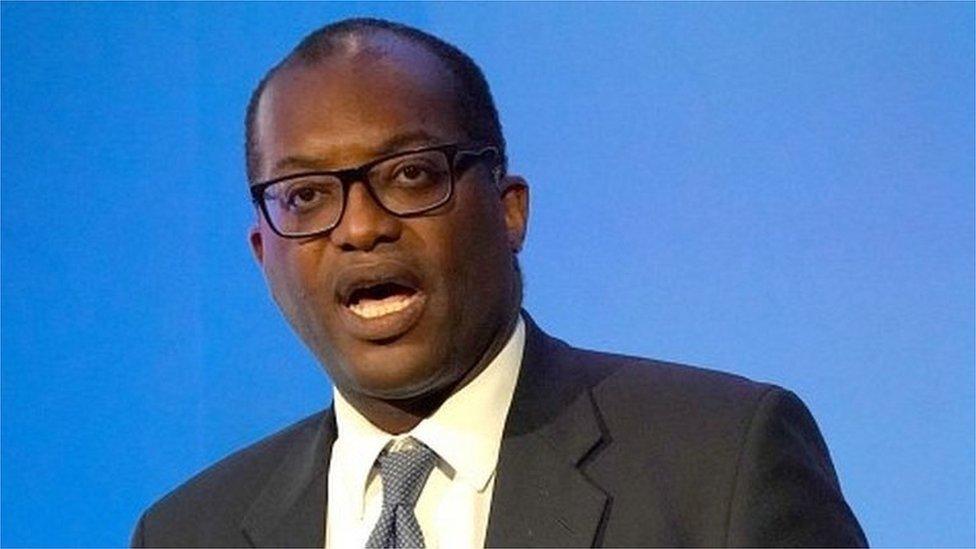Very difficult winter ahead for many, warns Kwasi Kwarteng
- Published
- comments

Many UK households could face a "very difficult winter", with fuel prices surging and the £20-a-week uplift in universal credit ending, Business Secretary Kwasi Kwarteng has warned.
But he told BBC Breakfast the energy price cap was staying in place, despite a global spike in prices.
The temporary universal credit rise, brought in earlier in the pandemic, is due to end in October.
Labour has called for it to remain in place to help hard-pressed households.
Universal credit is a benefit for working-age people which replaces six former payments, including income support, housing benefit and income-based jobseeker's allowance.
Asked about the end to the uplift, Mr Kwarteng said: "It's a difficult situation. It could be a very difficult winter.
"That's why, as energy minister, I'm very focused on helping people that are fuel poor. Universal credit... is an issue for the chancellor and the work and pensions secretary, I'm speaking to them a great deal about it."
The Joseph Rowntree Foundation, an anti-poverty think tank, has warned of a "perfect storm" for consumers this autumn, as problems with global supply chains also increase food prices.
Workers also face a rise in National Insurance payments from next April, to help fund higher costs for the NHS and social care.
Commons debate
Labour is to hold a debate in the Commons on Tuesday, calling on the government to halt the proposed cut to the universal credit top-up.
The party's shadow chief secretary to the Treasury, Bridget Phillipson, said the combination of price rises and falling incomes wasn't "a freak event".
"Instead of changing direction and taking action, [the government] have created an avoidable and unacceptable burden on working people, making the squeeze on household finances worse by putting up taxes for working people and cutting universal credit," she said.
Speaking on BBC Two's Newsnight programme on Monday, the Conservative former Brexit Secretary, David Davis, warned there was a risk of a "cost of living crisis" for new Tory voters such as "the plumber, the bricklayer, the lorry driver".
He said his advice to Chancellor Rishi Sunak would be: "You think hard about the ordinary family's take-home pay and what they have to buy with it, because that will be a dictator of how people feel going in to the new year."
While Mr Kwarteng said the rise in National Insurance payments was "not strictly a winter issue", he did add that there was more immediately a "global energy spike in terms of prices".
Several small energy companies have warned they will go out of business unless they are able to pass on costs to customers.
Mr Kwarteng said he was "very clear" that the price cap - introduced in January 2019 for standard variable or default tariffs, which are typically the most expensive - would remain, "so we're protecting customers there".
He added that the warm home discount - a one-off payment for those most in need - and winter fuel payments, "focused on the most vulnerable customers" were also staying.
And defending the end of the universal credit £20 a week top-up, he said the government had spent a "huge" amount of money during the pandemic, supporting workers and the economy, adding: "There was a debate about how long we could afford this."